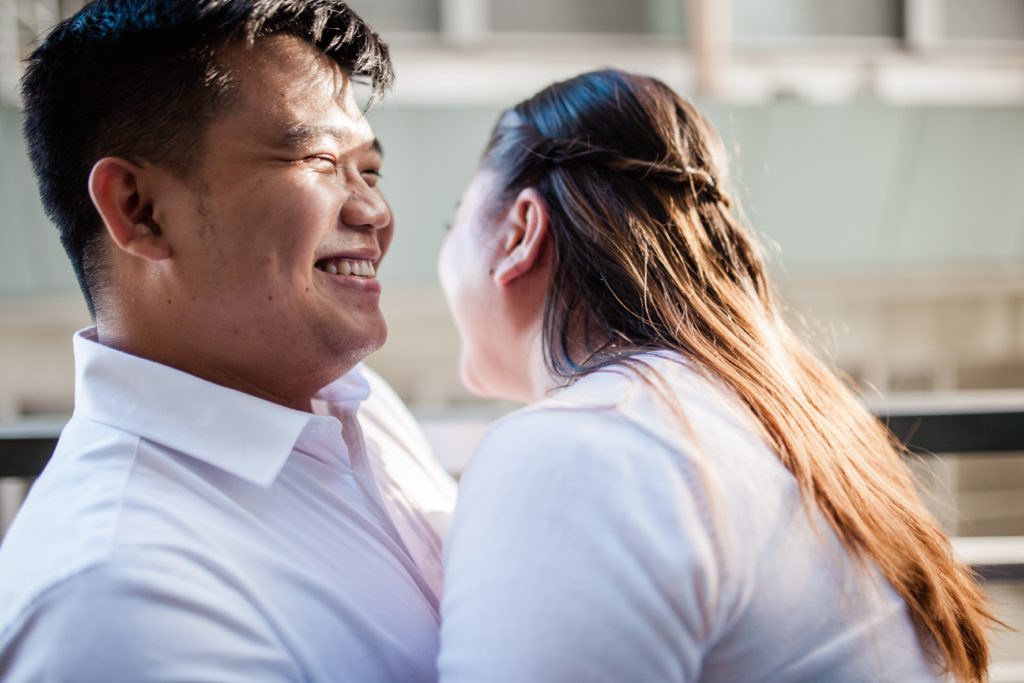When I was a college student, I remember hearing a speaker make a joke about how some incompatible couples justify their relationships: “But we both LOVE cantaloupe. We’re meant for each other!” His point was that sometimes young, hormone-charged singles jump into relationships despite having very little in common.
Overall, I sense that when it comes to seeking a marriage partner, singles have become choosier over the past two decades. One study of 41,000 online daters in Australia revealed that singles at the age of peak fertility — ages 18-30 years — tend to care more about the education level of the person they’re dating. Specifically, women are choosier before age 40 and men become the choosier sex after age 40. Of course, singles can have many other preferences in addition to level of education, such as a partner who maintains a healthy lifestyle, enjoys similar hobbies, is a certain age, dresses a certain way, has a specific career, manages money in a particular manner, etc.
Preferences matter
Before I married, I dated several men who hit the mark on my essentials — strong believers who exhibited kindness and integrity and wanted families — but fell short when it came to my preferences. Maybe they didn’t enjoy doing the same kinds of things I did, didn’t share a similar sense of humor, or ordered tea instead of coffee.
None of these things alone were deal breakers, and I’m glad I explored those potential relationships (though several fizzled after a single date). But ultimately, I did end up with someone with whom I share much in common. Just like a friendship, solid romantic bonds are often formed through shared perspectives on life, similar interests, and compatible lifestyles. Though a person’s choice of hot beverage won’t be a big deal to everyone, it certainly helped that my now-husband appreciates a good cup of coffee (and, as a former barista, can make me a good cup of coffee). Many of our dates through the years have revolved around our shared passion for java.
When preferences become priorities
While your preferences do matter, the key is to not allow too many expectations to become a barrier to a potentially great relationship. Here’s an example: I once heard a writer friend explain that she never dated men who weren’t voracious readers. Her reasoning was that as a writer, she felt her spouse would need to read the things she wrote to be compatible with her. Therefore, a non-reader was out as a romantic possibility.
I don’t think her rationale was wrong; for her, having a spouse who liked to read was a high priority. But such a specific parameter can be unnecessarily limiting. Though I write books, I married someone who doesn’t like reading them (not just my books — all books). While he takes an interest in my career and reads anything I ask him to, he only reads a fraction of the words I put on the page. And that’s OK. I don’t mind because he cares for me in other ways. In fact, we recently enjoyed listening to the audiobook of my most recent book while taking a long drive together — something we both enjoy.
When I was in high school, I drew a sketch of my “perfect man.” He was clean-shaven, looked like he worked out, wore hiking boots, and had the surfer-boy haircut that was popular at the time. Spoiler alert: My husband turned out to be nothing like that picture (though he does own hiking boots). I knew when I drew the sketch that my future spouse would not necessarily resemble it. However, I also made a list in the margin of the character qualities I was seeking in a mate: kindness, gentleness, a heart for the Lord, loves kids, a sense of humor. My husband, Kevin, possesses all those qualities.
It’s all about balance
Christian singles seeking a godly spouse must balance their expectations. Obviously, there are true deal breakers. Believers are not to be unequally yoked with unbelievers, and godliness and character are vital. It’s also fine to have preferences and even a list of “must-haves,” but don’t let them be a barrier to God’s creativity in providing a spouse you didn’t see coming. I’ve heard enough amazing stories (including my own) to know that God often doesn’t work within our limitations. It’s also helpful to consider that the person you marry today may be a very different person in ten — or even five — years. The key is discovering someone who is on a good trajectory with whom you feel a strong connection and can build a solid friendship.
An unmarried friend recently told me how she was reconsidering a man she had once written off for superficial reasons. She realized her initial reservations shouldn’t prevent her from getting to know a good man of faith. Their differences may prove to be too great, but then again, they may not. I admire her for being willing to reevaluate and give God room to work. Keeping an open mind and holding loosely to expectations can allow God to show you possibilities you would never have come up with on your own.
Copyright 2022 Suzanne Hadley Gosselin. All rights reserved.












